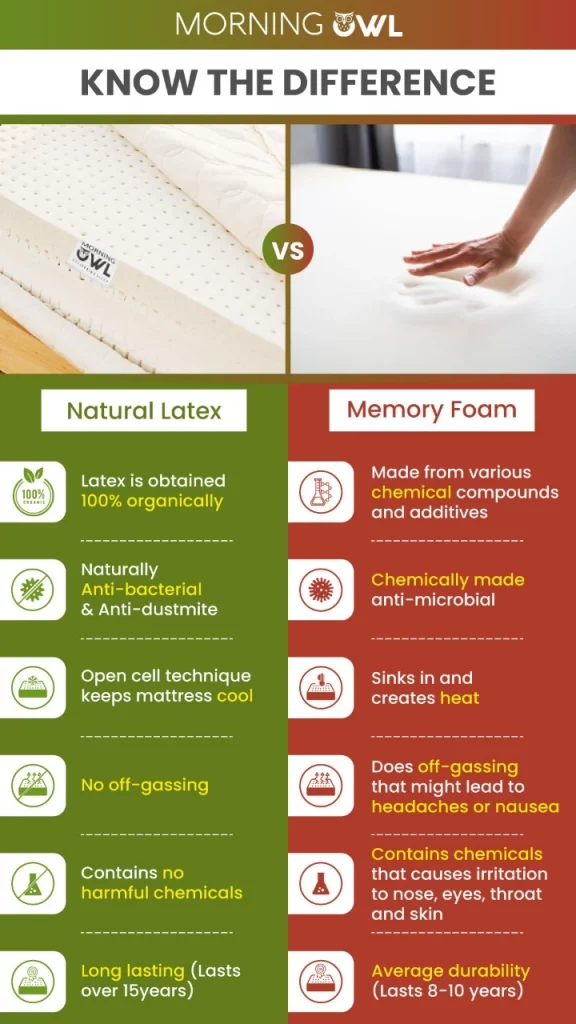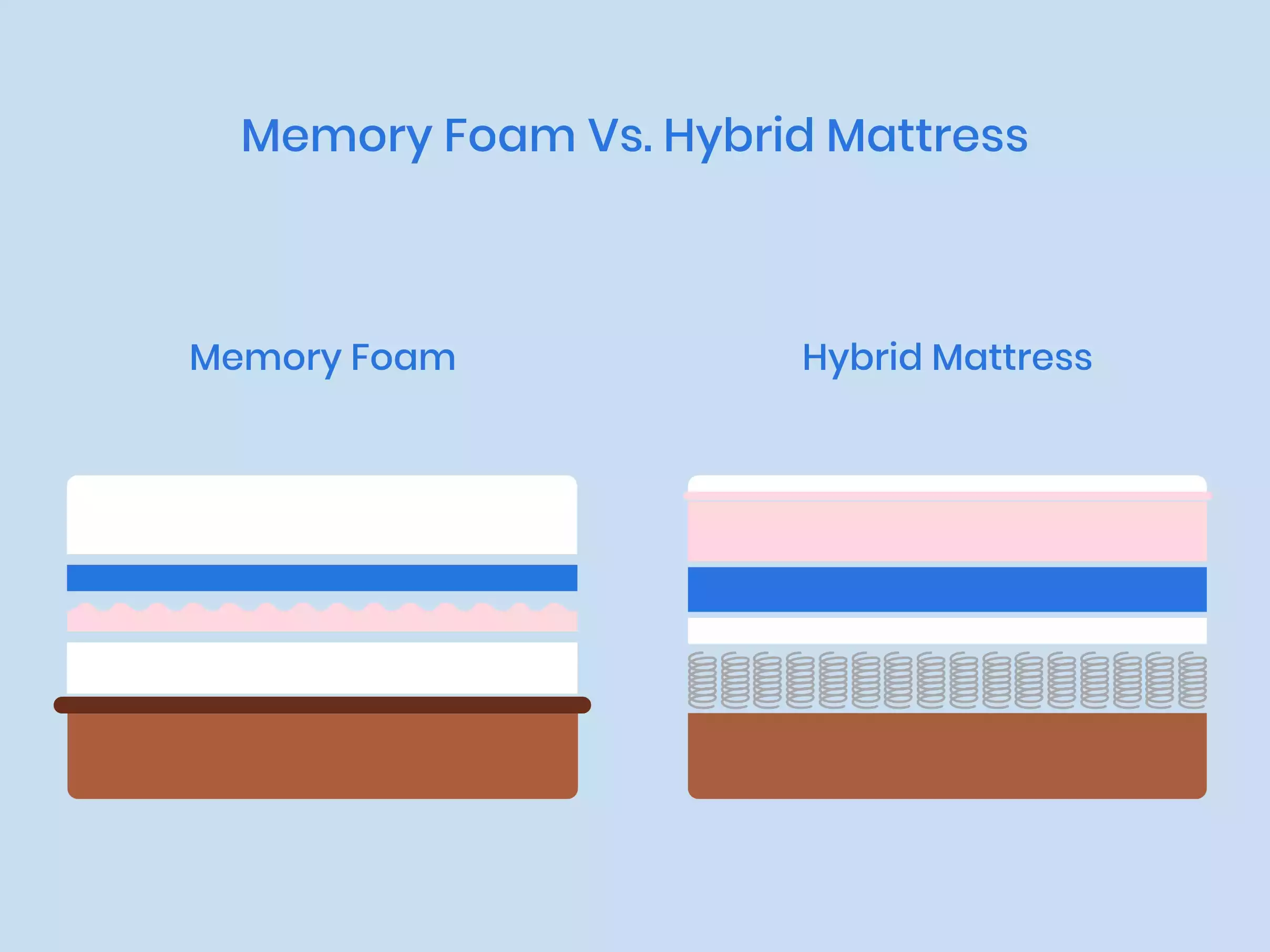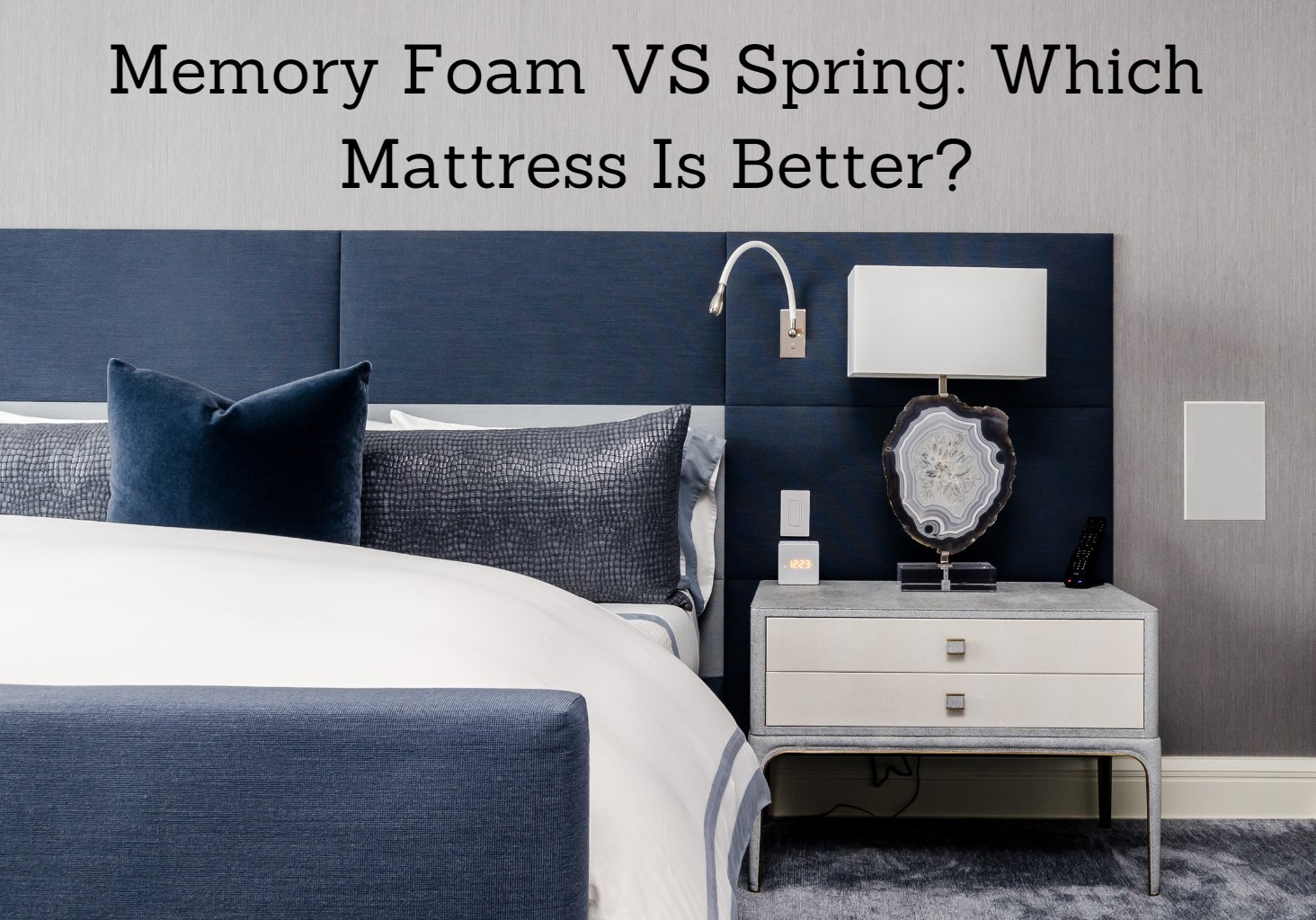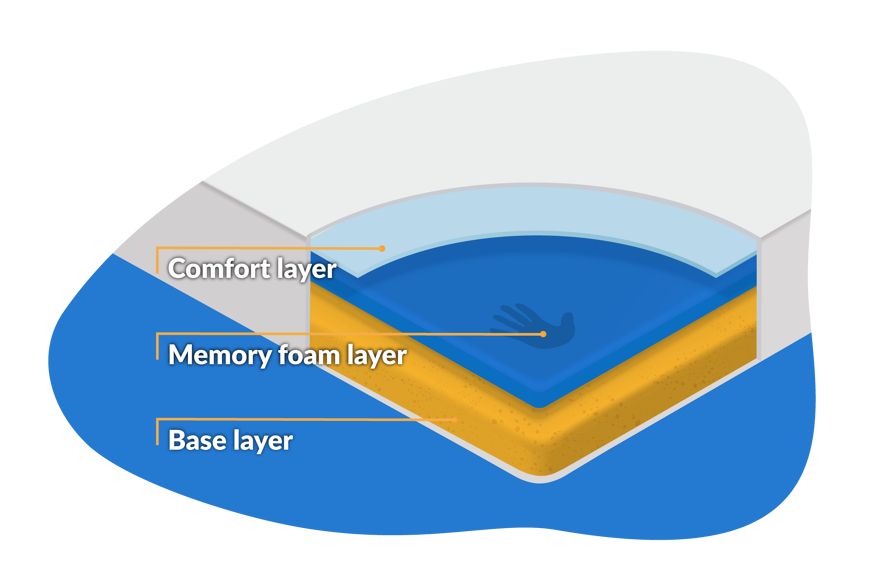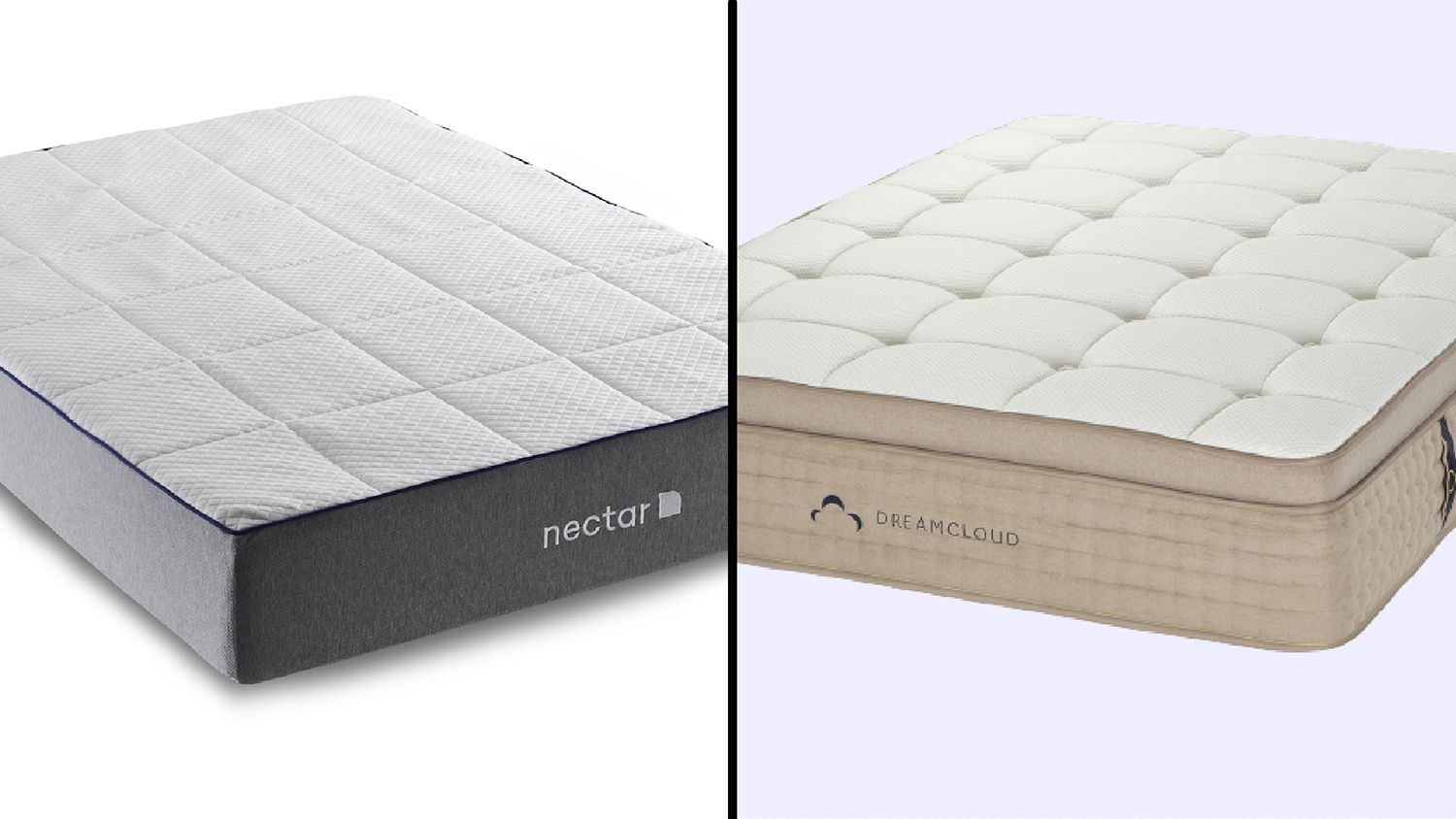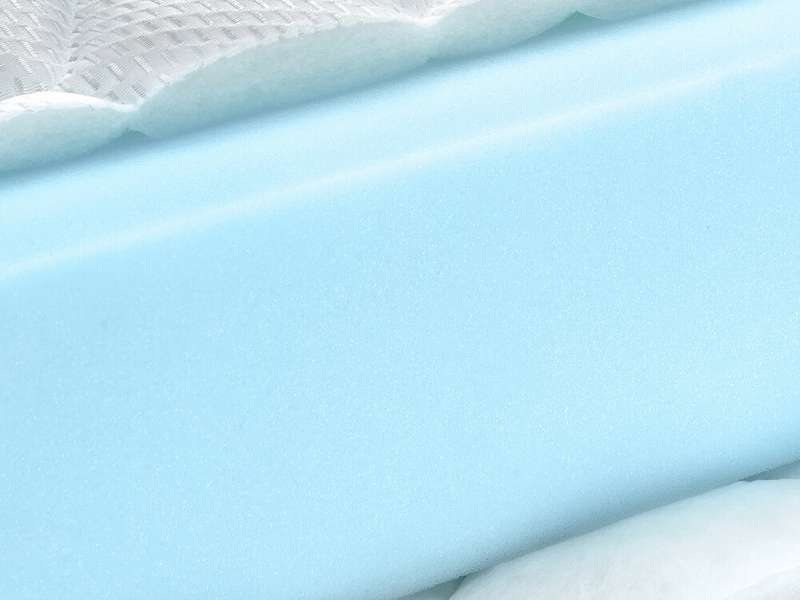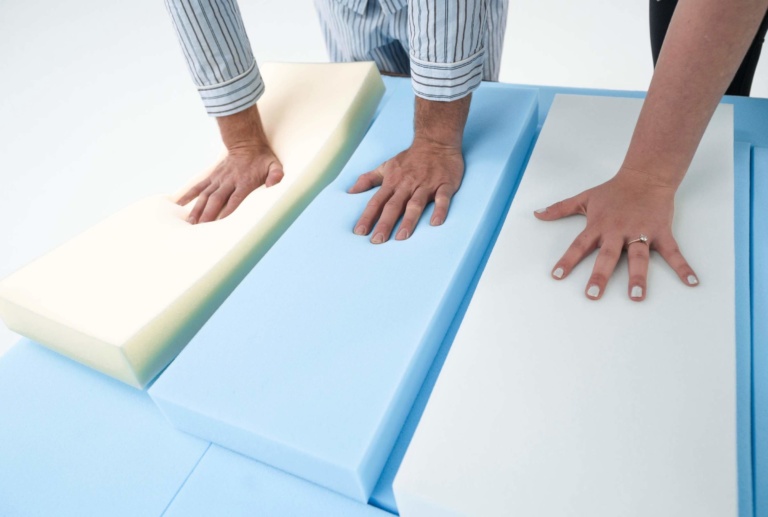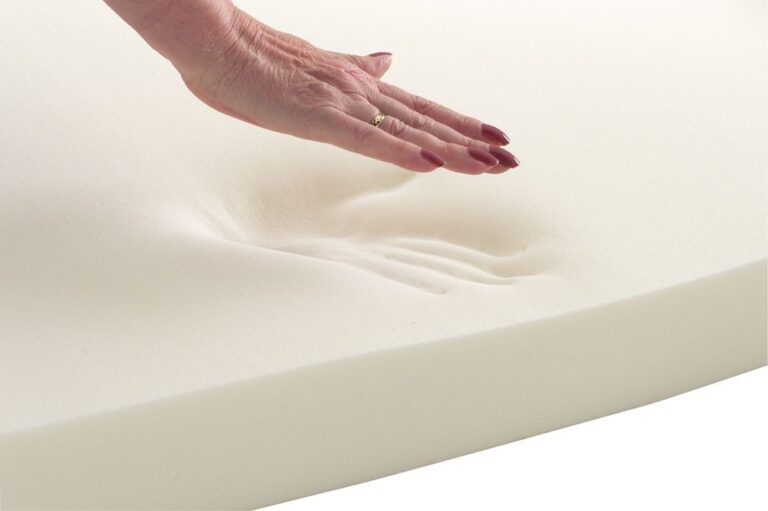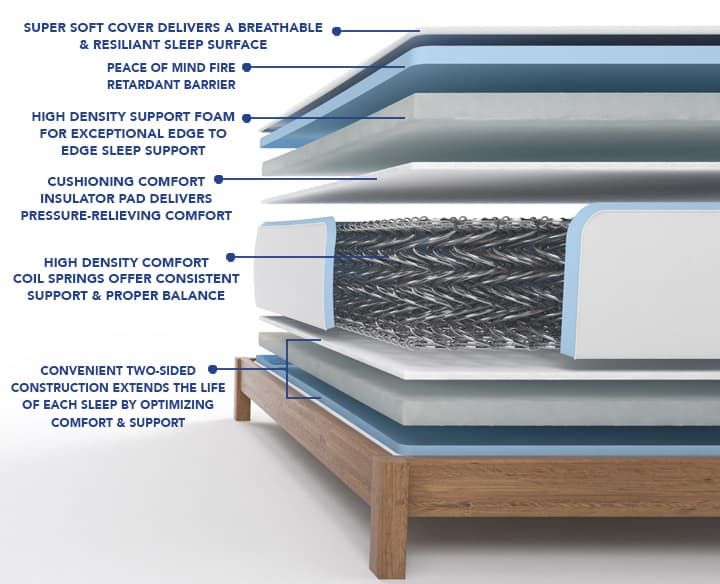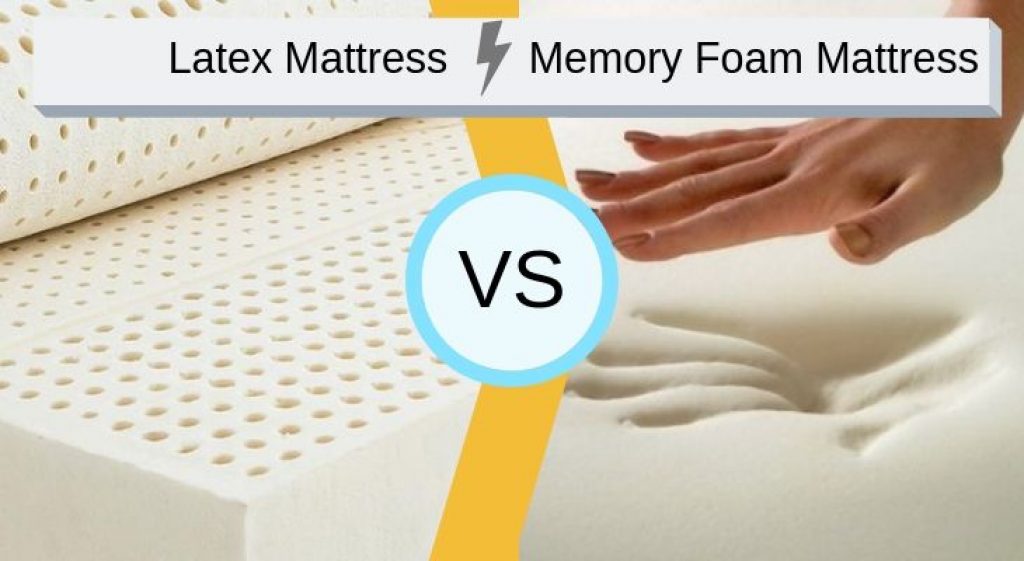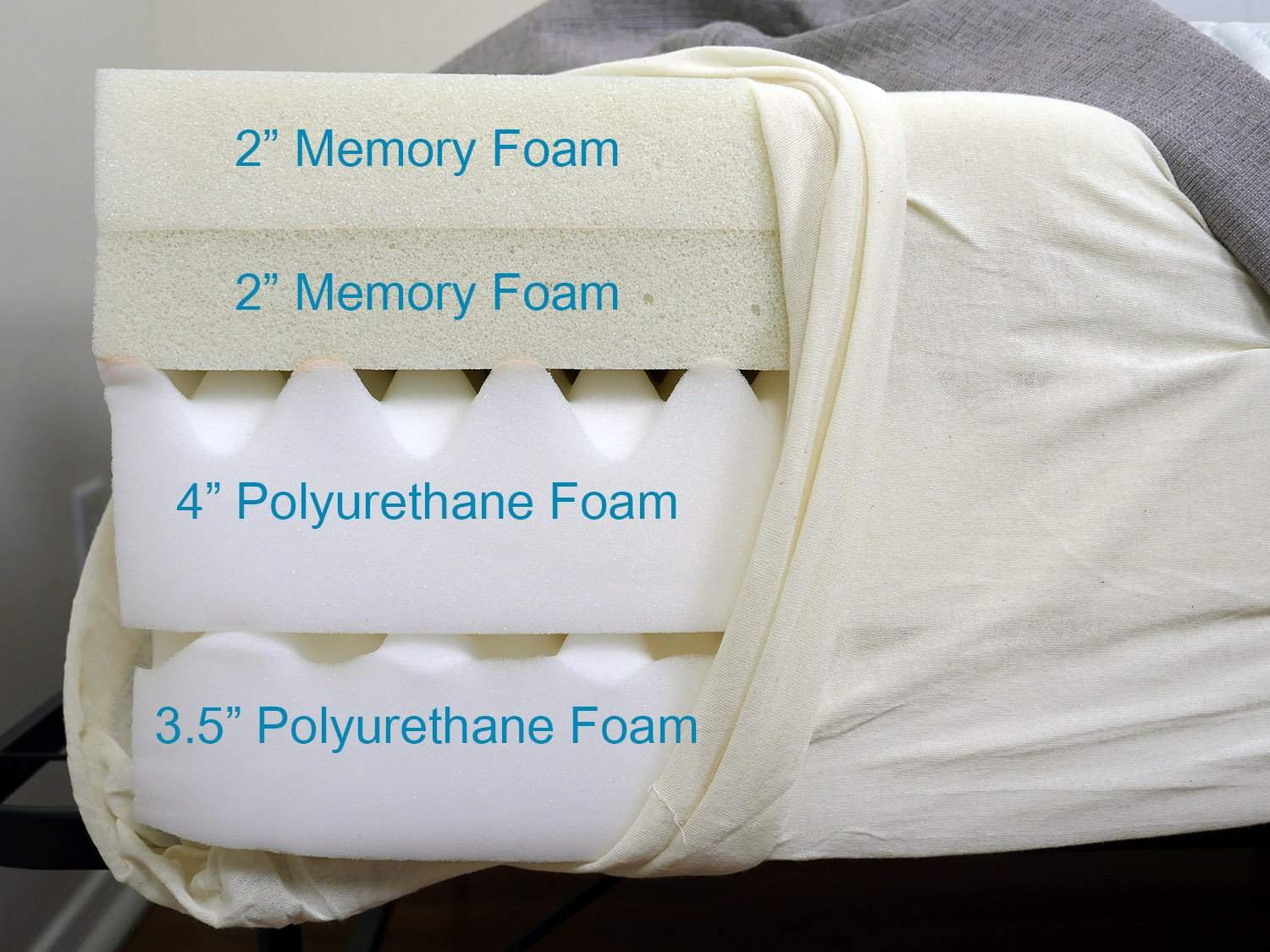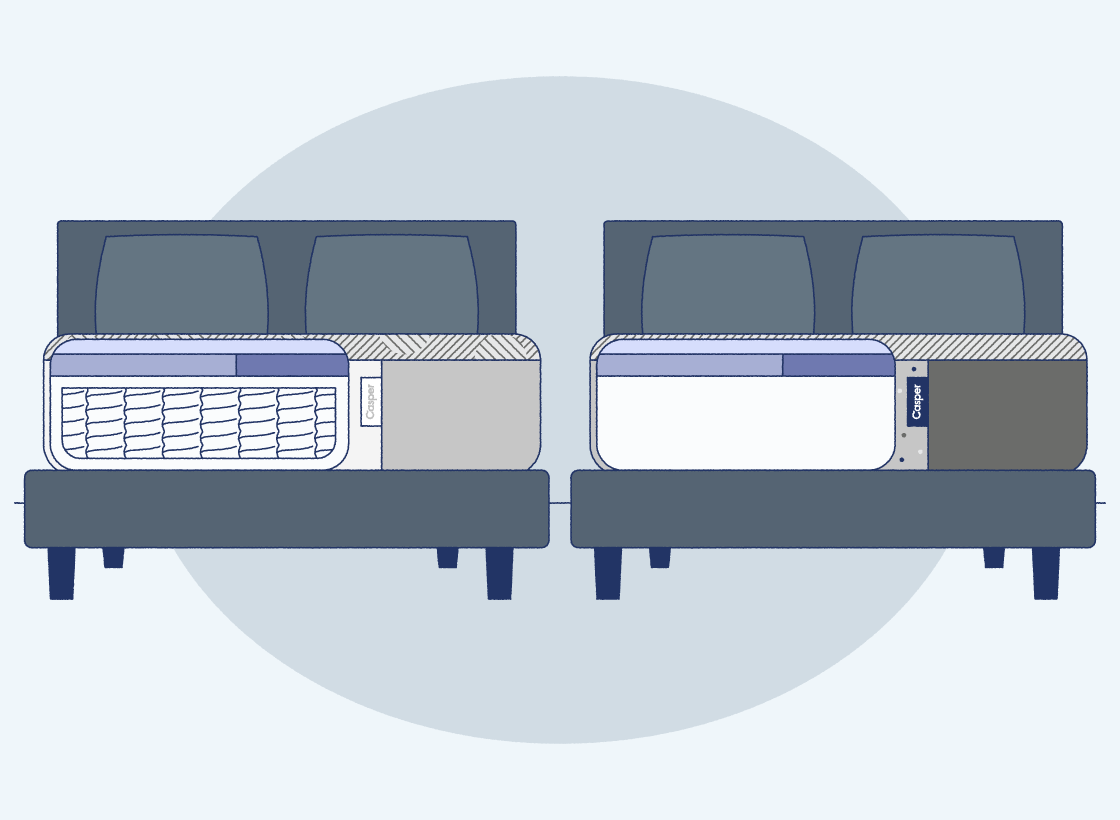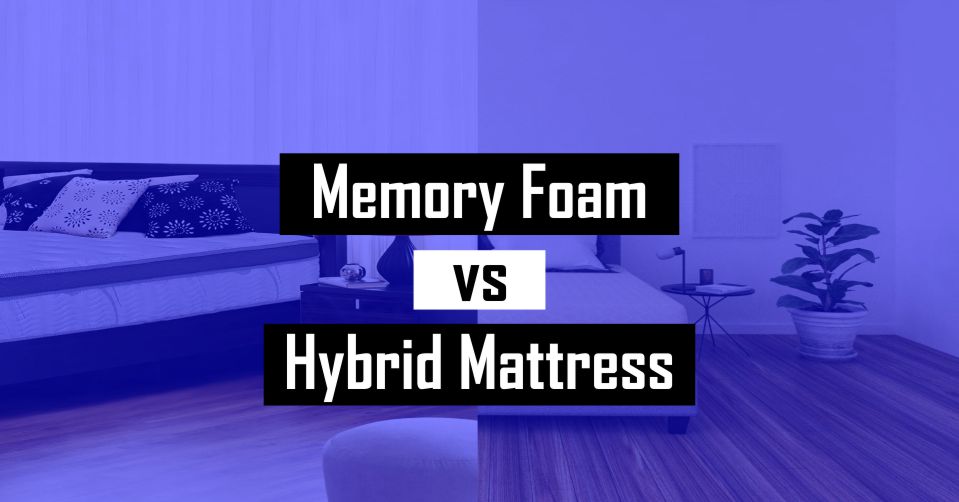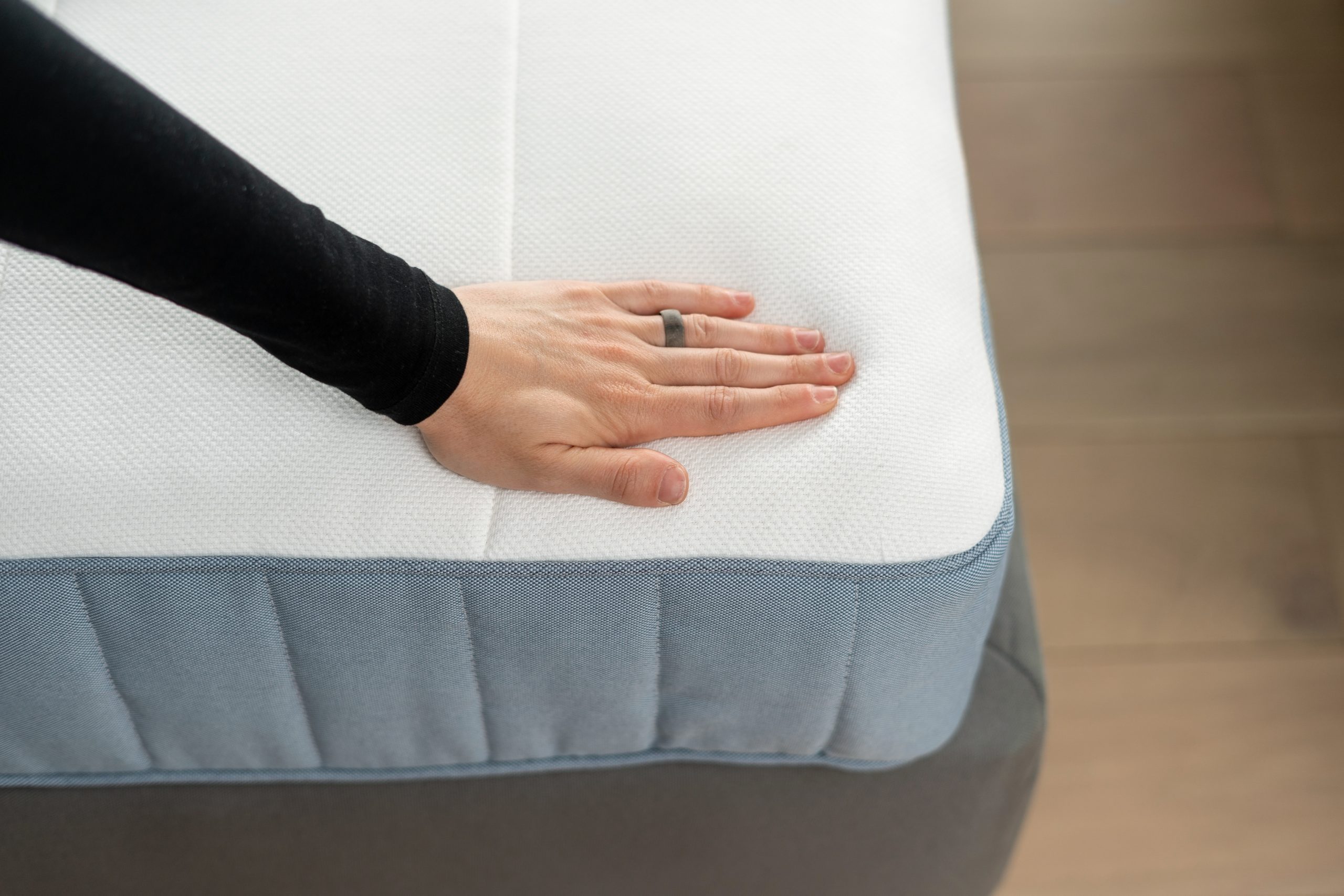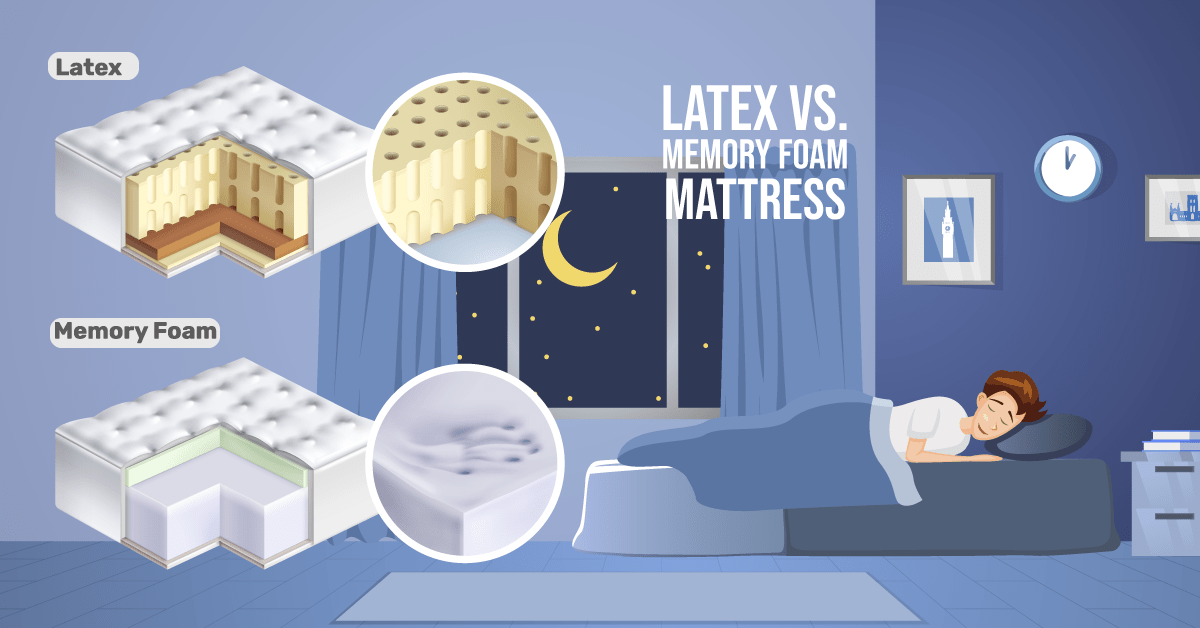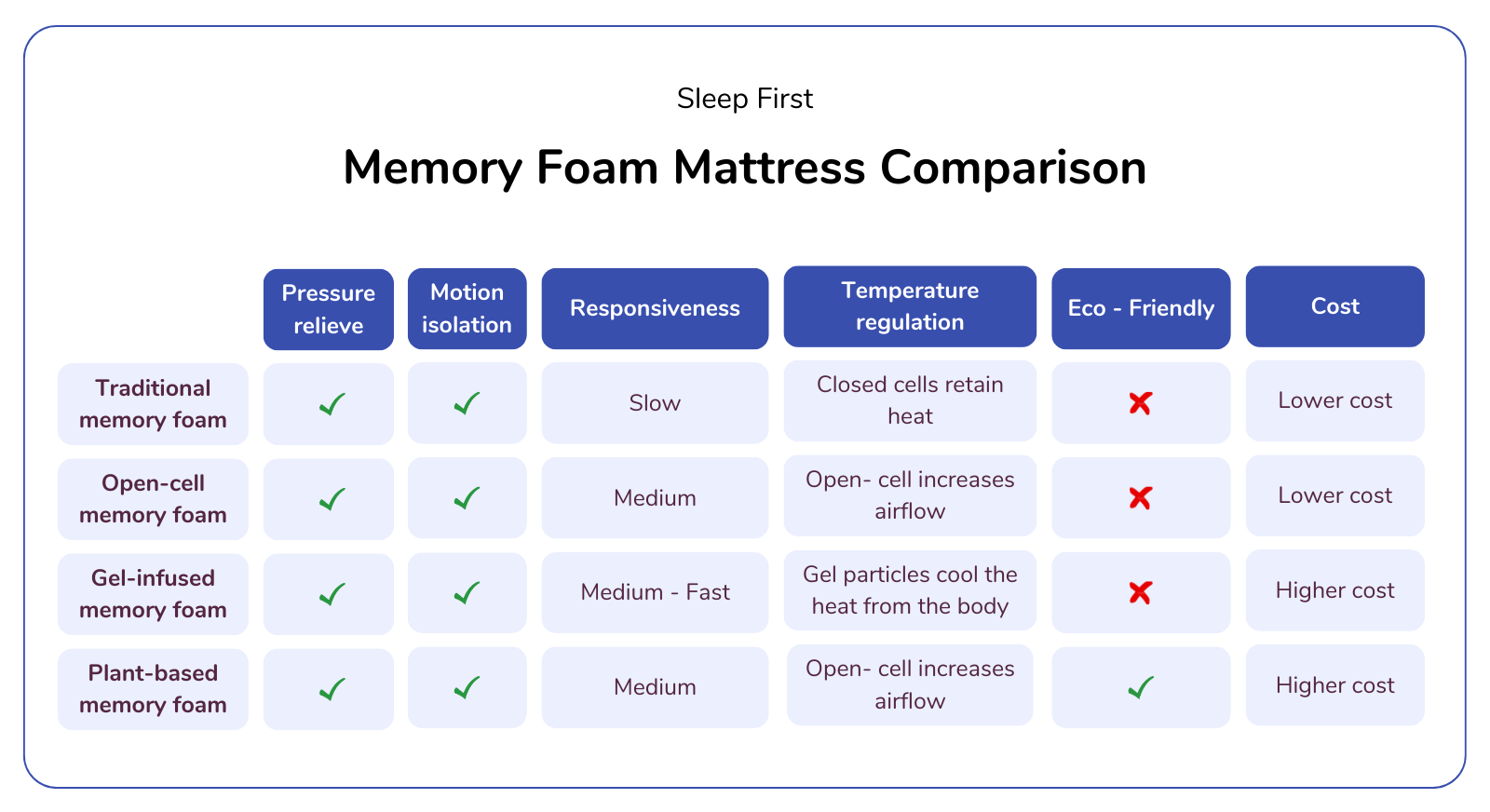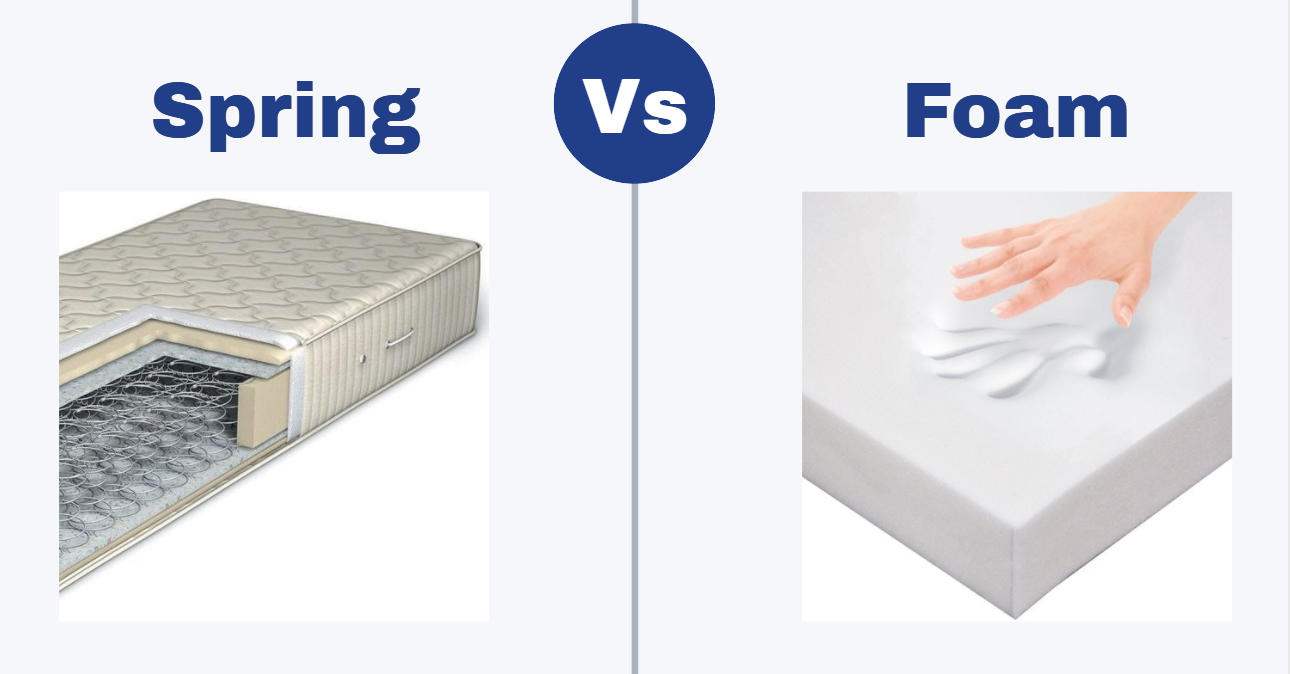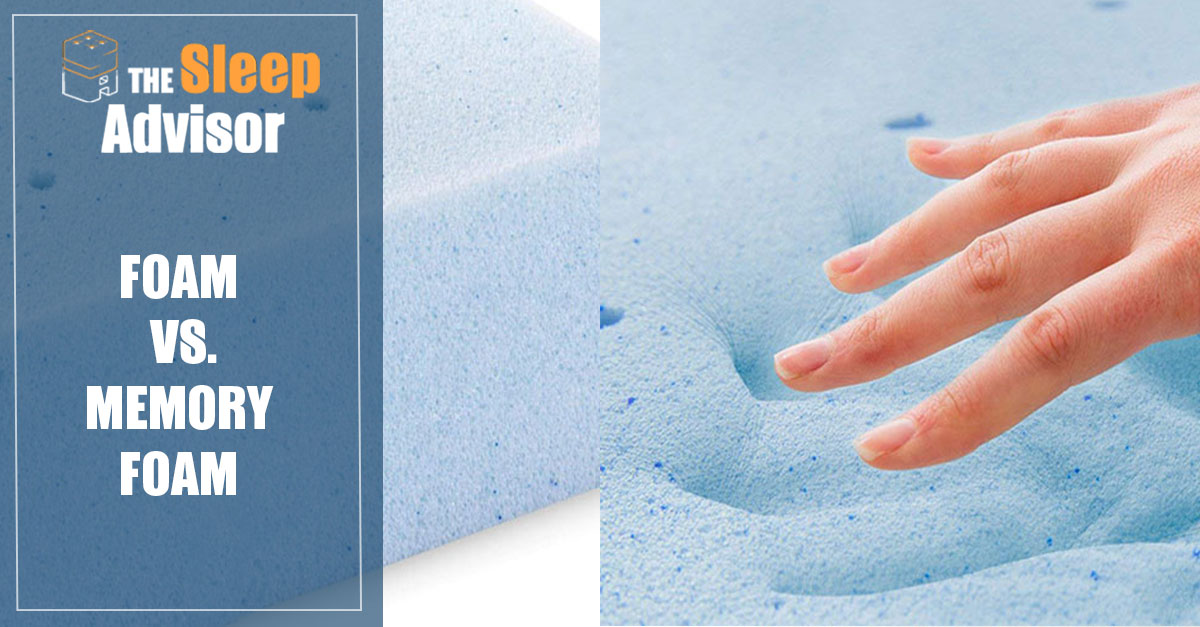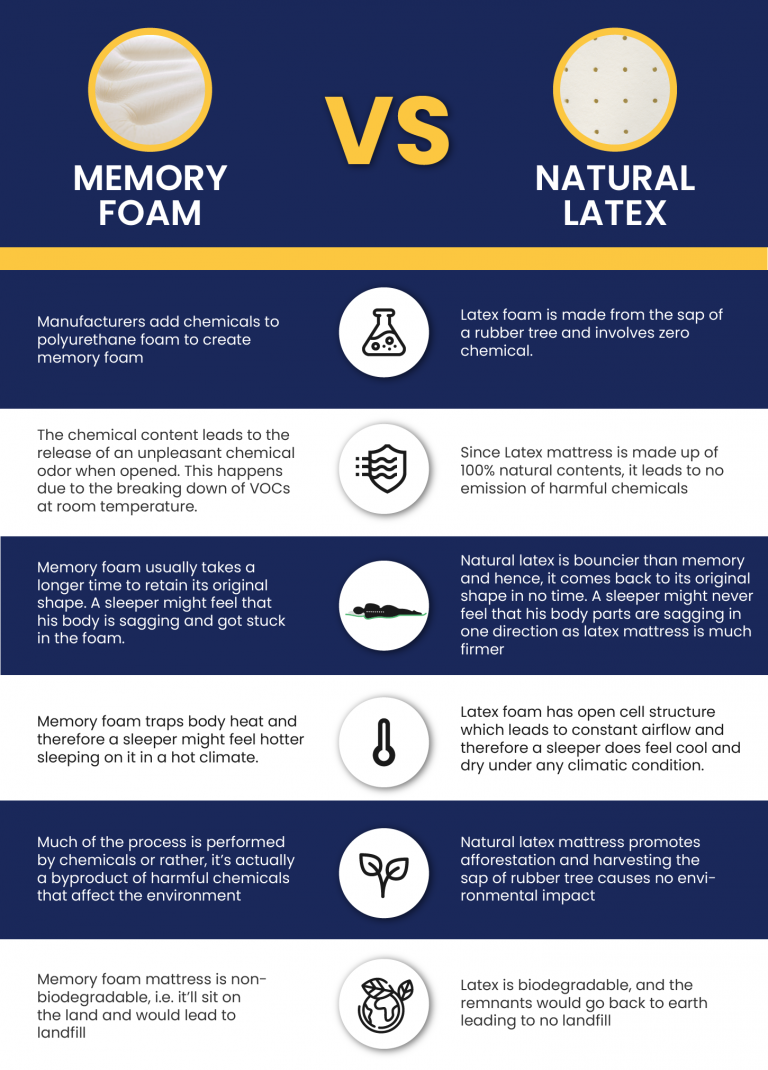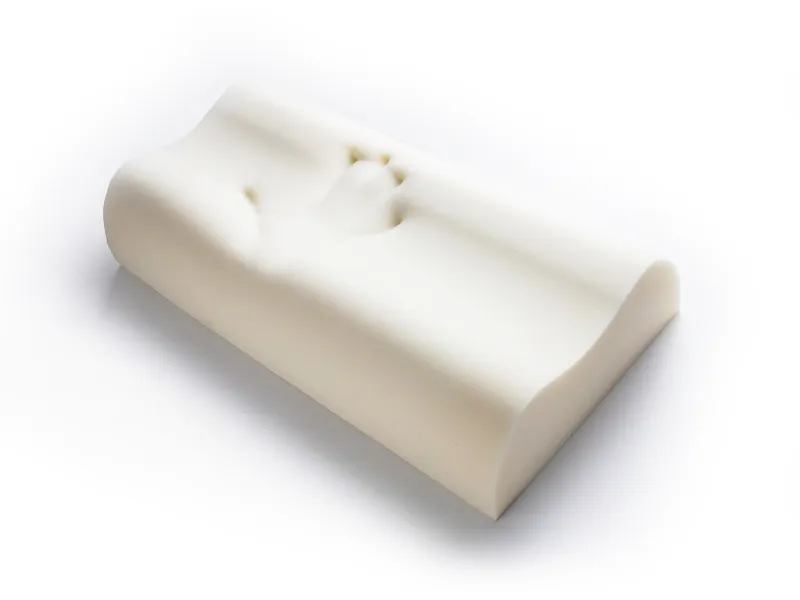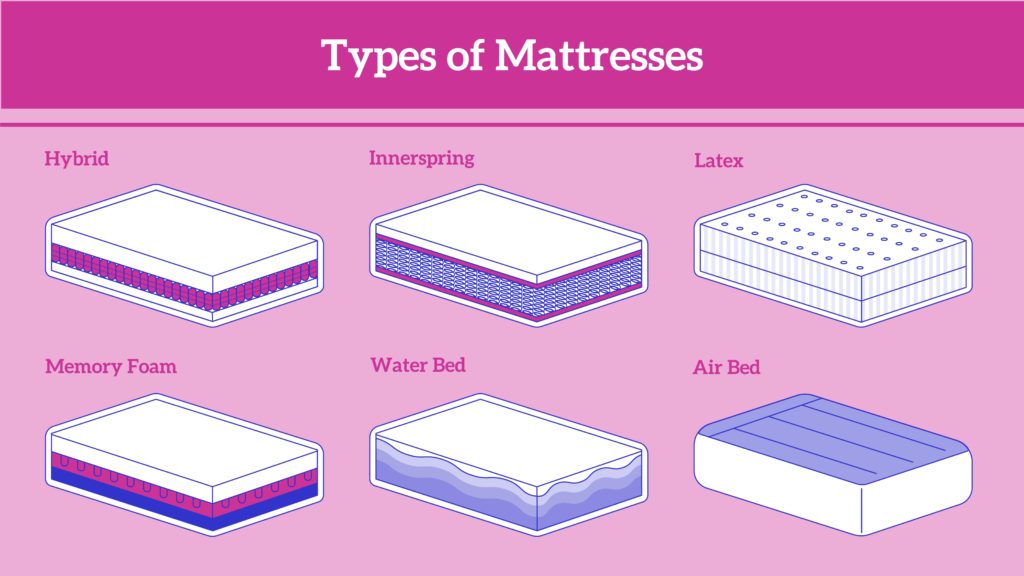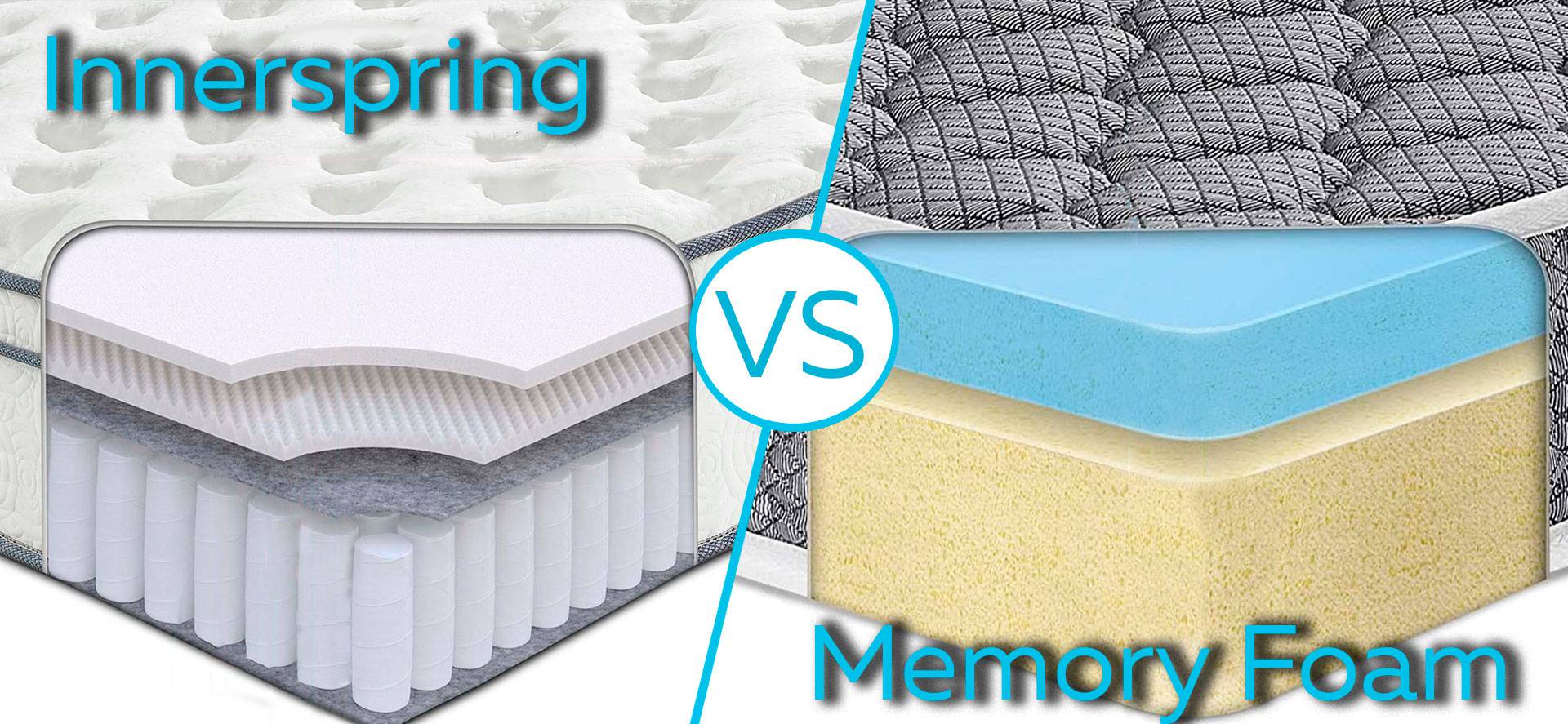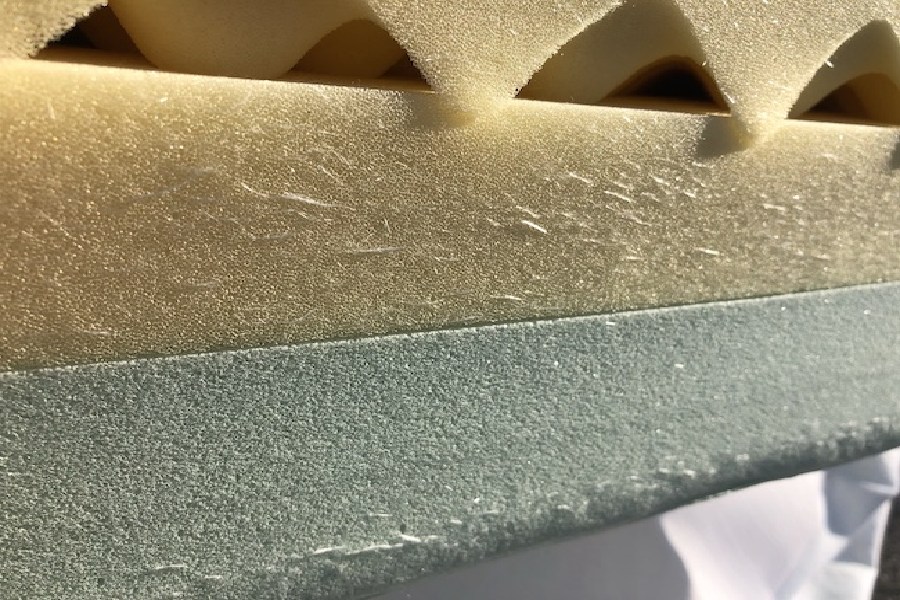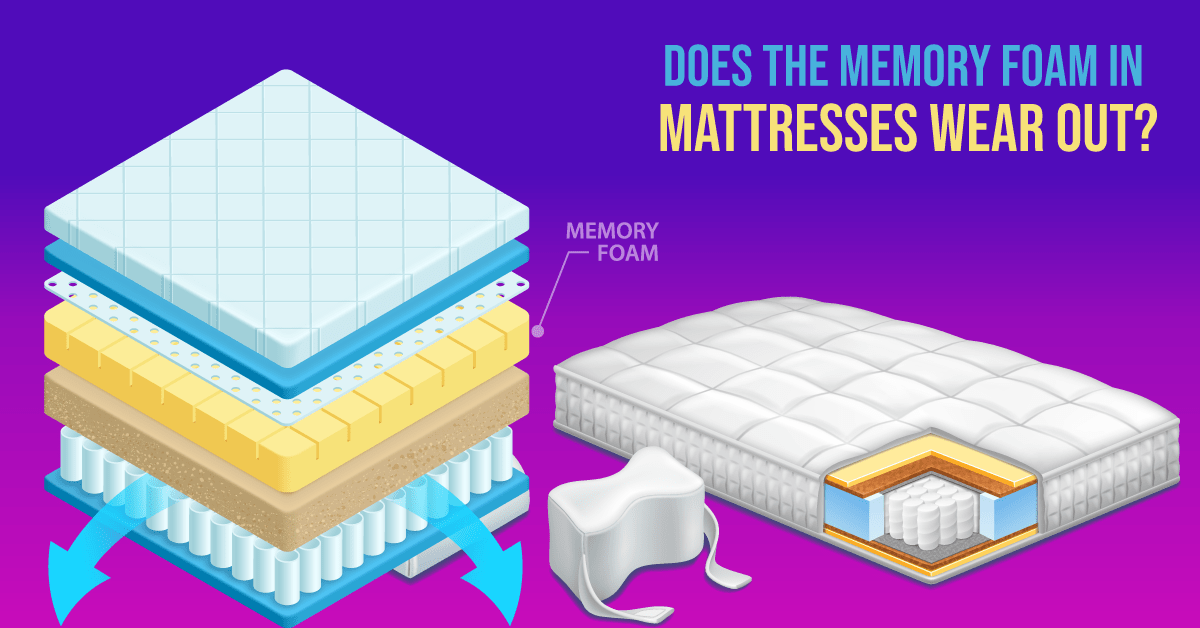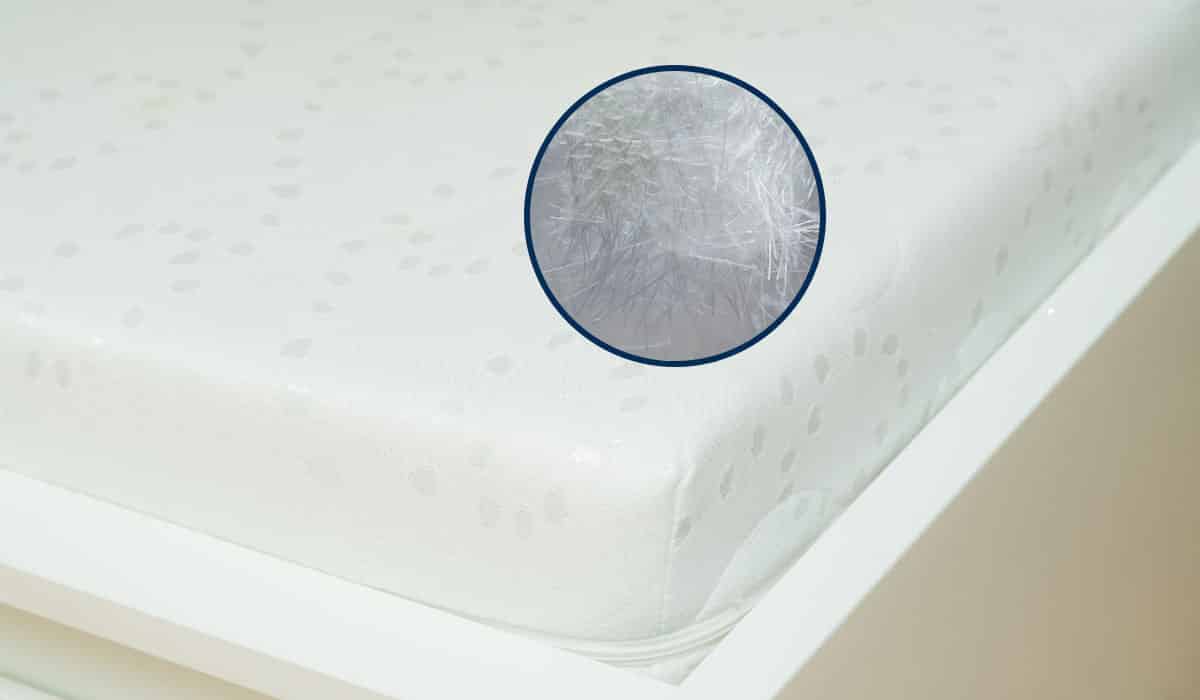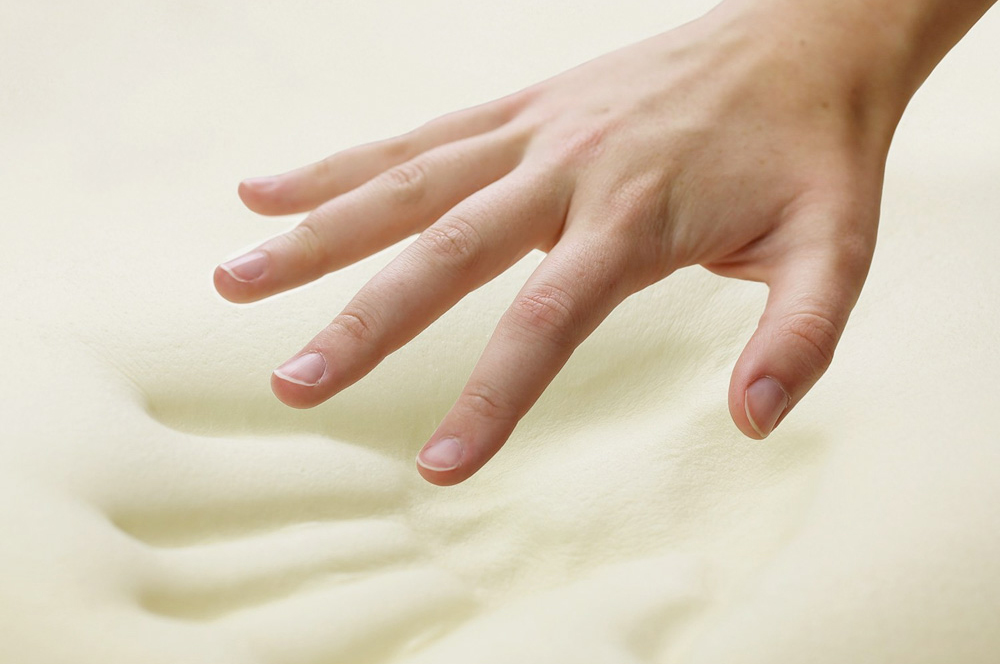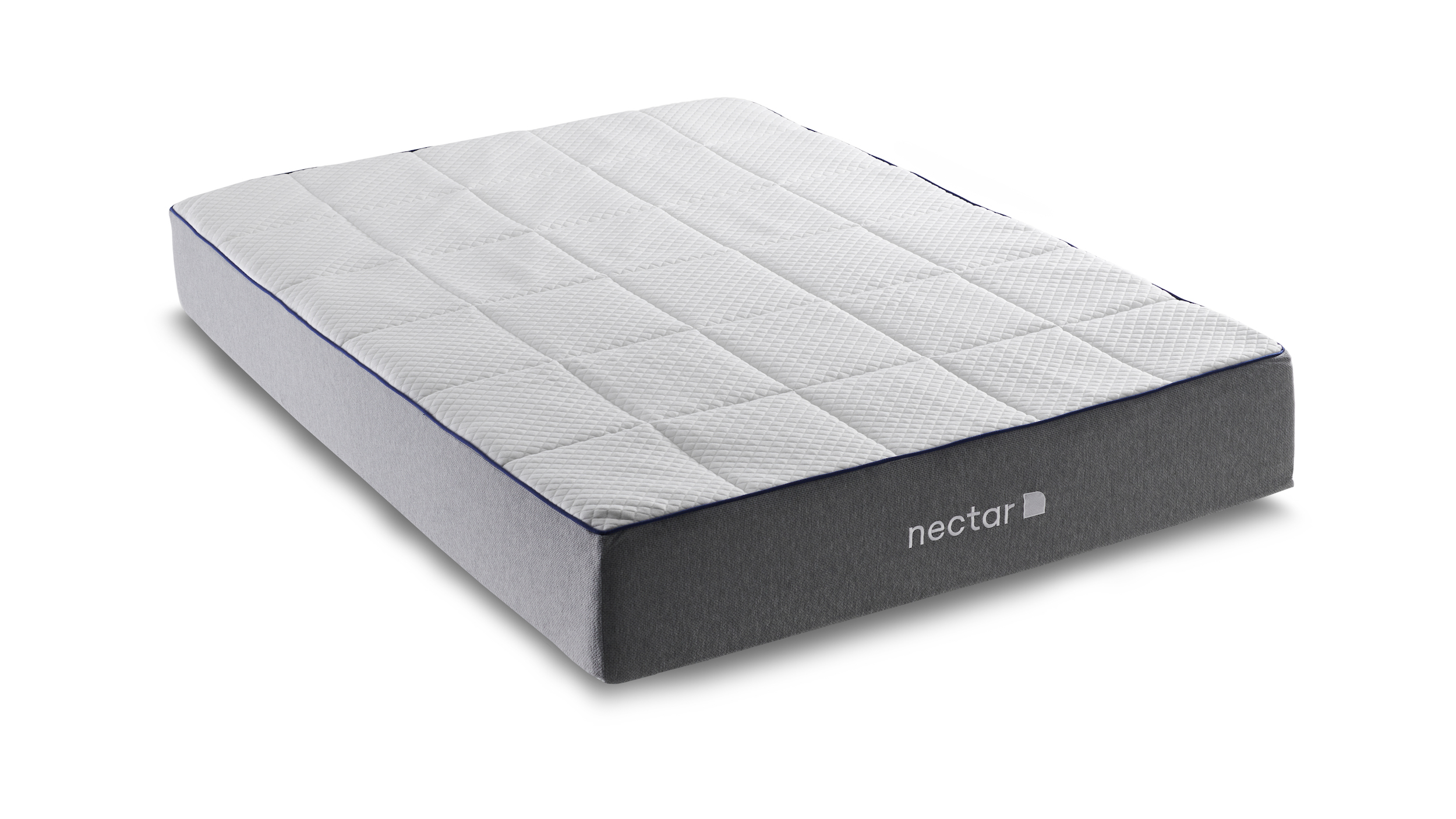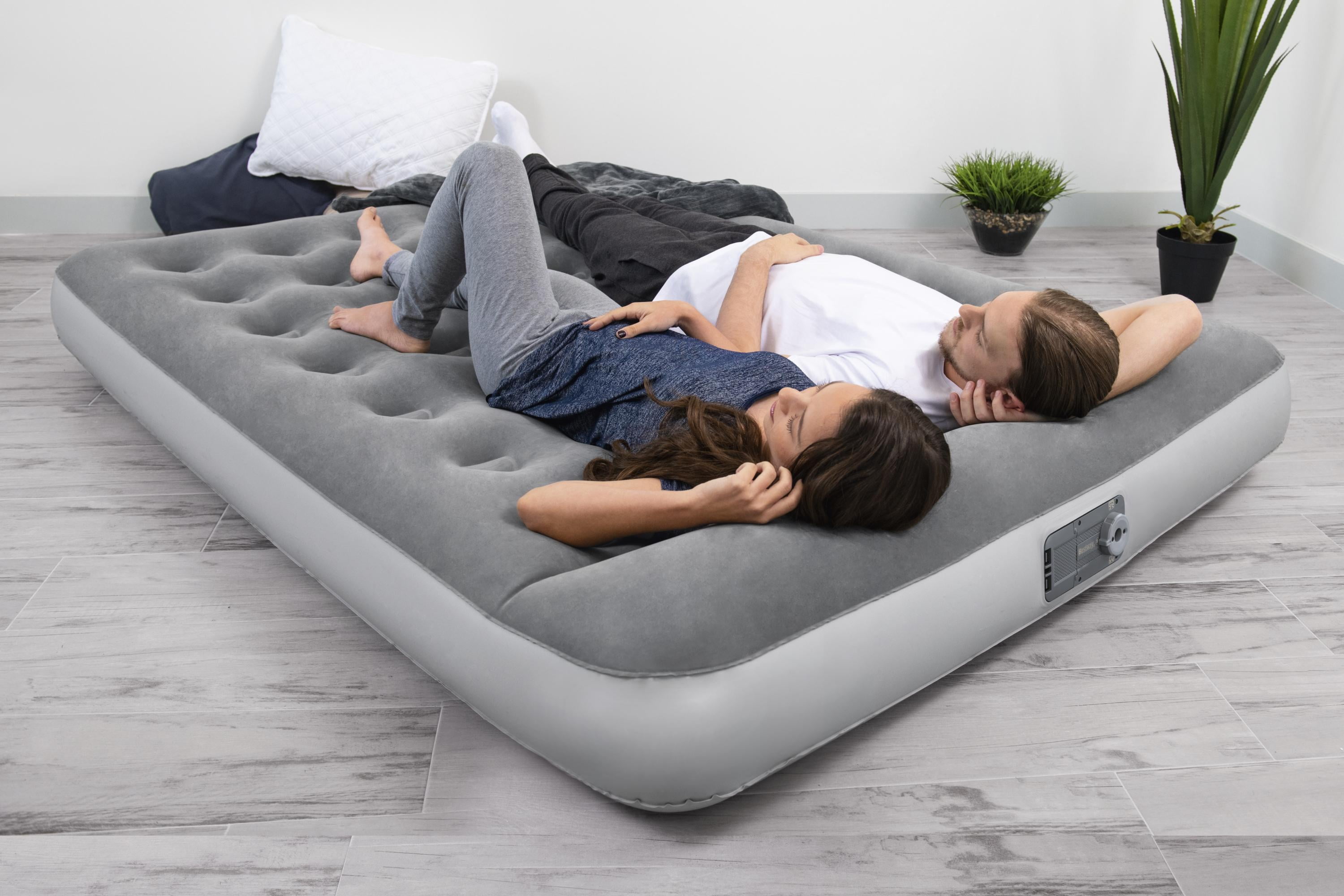When it comes to buying a new mattress, one of the biggest decisions you’ll face is choosing between a memory foam or a fiber mattress. Both offer unique benefits and have their own set of pros and cons. It’s important to understand the differences between these two types of mattresses in order to make the best decision for your sleeping needs. In this article, we’ll compare the comfort, support, durability, cost, and other factors of memory foam and fiber mattresses to help you determine which one is truly better for you. Memory Foam vs Fiber Mattress: Which One is Better?
Memory foam mattresses are known for their exceptional comfort and pressure-relieving abilities. They conform to the body and provide support exactly where it’s needed, making them a popular choice for those with back or joint pain. On the other hand, fiber mattresses are often praised for their affordability and lightweight design. They may not have the same level of support as memory foam, but they are known for being soft and comfortable. However, both types of mattresses have their downsides as well. Memory foam mattresses have been known to retain heat, which can be uncomfortable for hot sleepers. They also have a “sinking” feeling that some people dislike. Fiber mattresses, while affordable, may not provide enough support for those with chronic pain or larger body types. They may also have a shorter lifespan compared to memory foam mattresses. The Pros and Cons of Memory Foam and Fiber Mattresses
When it comes to comfort and support, memory foam and fiber mattresses offer different experiences. Memory foam mattresses are designed to contour to the body and provide pressure relief. This can be especially beneficial for those with back or joint pain, as the mattress conforms to their body and reduces pressure points. On the other hand, fiber mattresses are typically softer and provide a more “cloud-like” sleeping experience. However, they may not offer the same level of support as memory foam, and some people may find them too soft. Comparing the Comfort and Support of Memory Foam and Fiber Mattresses
Durability is an important factor to consider when investing in a new mattress. Memory foam mattresses are known for their longevity, with some models lasting up to 10 years or more. This is due to their dense structure and high-quality materials. On the other hand, fiber mattresses may not have the same lifespan, especially if they are made with lower quality materials. They may also become lumpy or lose their shape over time. Memory Foam vs Fiber Mattress: Which is More Durable?
One of the main reasons people choose fiber mattresses over memory foam is because of their affordability. Fiber mattresses are typically much cheaper than memory foam mattresses, making them a budget-friendly option for those on a tight budget. However, it’s important to keep in mind that the cheaper price may also mean a shorter lifespan. On the other hand, memory foam mattresses are often more expensive, but they also tend to last longer. This means you may end up saving money in the long run by investing in a high-quality memory foam mattress. The Cost Comparison of Memory Foam and Fiber Mattresses
If you suffer from allergies, the type of mattress you choose can make a big difference in your sleep quality. Memory foam mattresses are known for their hypoallergenic properties, as they are resistant to dust mites and other allergens. They also have a dense structure that makes it difficult for allergens to penetrate. Fiber mattresses, on the other hand, may not have the same level of protection against allergens and may need to be replaced more frequently if you have allergies. Memory Foam vs Fiber Mattress: Which is Better for Allergies?
It’s important to understand the key differences between memory foam and fiber mattresses in order to make an informed decision. Memory foam mattresses are made from a dense viscoelastic foam that conforms to the body, while fiber mattresses are usually made from a variety of materials, such as cotton or polyester. Memory foam mattresses also have a higher density, which means they may provide better support for those with chronic pain or larger body types. Understanding the Differences Between Memory Foam and Fiber Mattresses
As mentioned earlier, one of the downsides of memory foam mattresses is their tendency to retain heat. This can be uncomfortable for hot sleepers, especially during the warmer months. However, there are now memory foam mattresses on the market that are designed with cooling properties to combat this issue. On the other hand, fiber mattresses are typically more breathable and may be a better option for those who sleep hot. Memory Foam vs Fiber Mattress: Which is Better for Hot Sleepers?
When it comes to the environmental impact, both memory foam and fiber mattresses have their own pros and cons. Memory foam mattresses are typically made from synthetic materials, which may not be the most environmentally friendly option. However, some companies offer eco-friendly memory foam mattresses made from organic or plant-based materials. Fiber mattresses, on the other hand, may be more sustainable and biodegradable, but they may also contain chemical additives and dyes. The Environmental Impact of Memory Foam and Fiber Mattresses
Back pain is a common issue that can greatly affect your sleep quality. When it comes to choosing a mattress for back pain, it’s important to consider the level of support and pressure relief it offers. Memory foam mattresses are known for their ability to conform to the body and provide support exactly where it’s needed, making them a great option for those with back pain. On the other hand, fiber mattresses may not have the same level of support and may not be the best choice for those with chronic pain. Overall, the decision between a memory foam and a fiber mattress ultimately comes down to personal preference and individual needs. Both offer unique benefits and have their own set of drawbacks. It’s important to carefully consider the factors discussed in this article in order to choose the best mattress for your specific sleeping needs. Memory Foam vs Fiber Mattress: Which is Better for Back Pain?
Fiber vs Memory Foam Mattress: Which is the Better Choice for Your House Design?

Introduction
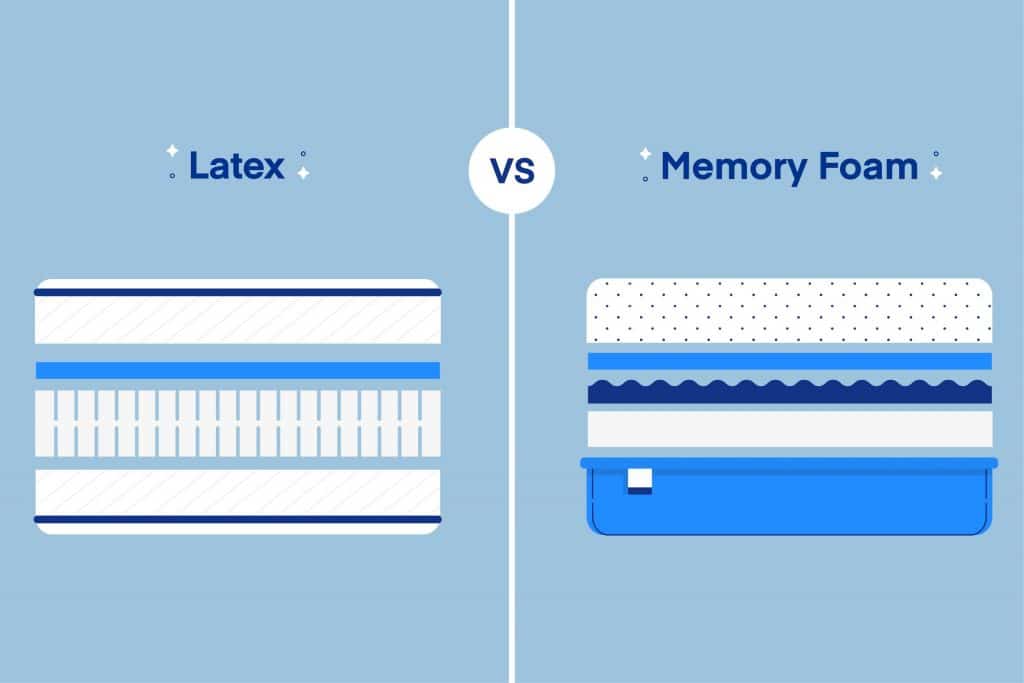 When it comes to designing a house, there are many factors to consider, including furniture, decor, and overall layout. However, one of the most important elements of a comfortable home is the mattress. After all, we spend a significant amount of time sleeping and relaxing on our beds. With the wide variety of mattresses available on the market, it can be overwhelming to choose the right one for your house design. In this article, we will compare
fiber and memory foam mattresses
to help you make an informed decision on which is the better option for your home.
When it comes to designing a house, there are many factors to consider, including furniture, decor, and overall layout. However, one of the most important elements of a comfortable home is the mattress. After all, we spend a significant amount of time sleeping and relaxing on our beds. With the wide variety of mattresses available on the market, it can be overwhelming to choose the right one for your house design. In this article, we will compare
fiber and memory foam mattresses
to help you make an informed decision on which is the better option for your home.
The Battle of Materials
 Fiber and memory foam are two popular materials used in mattresses, each with their own unique qualities.
Fiber mattresses
are made from natural or synthetic fibers such as cotton, wool, or polyester. These materials are known for their breathability and ability to regulate body temperature, making them a great choice for hot sleepers. On the other hand,
memory foam mattresses
are made from a high-density polyurethane foam that conforms to the body's shape, providing excellent pressure relief and support. They are known for their ability to relieve pain and promote better sleep.
Fiber and memory foam are two popular materials used in mattresses, each with their own unique qualities.
Fiber mattresses
are made from natural or synthetic fibers such as cotton, wool, or polyester. These materials are known for their breathability and ability to regulate body temperature, making them a great choice for hot sleepers. On the other hand,
memory foam mattresses
are made from a high-density polyurethane foam that conforms to the body's shape, providing excellent pressure relief and support. They are known for their ability to relieve pain and promote better sleep.
Comfort and Support
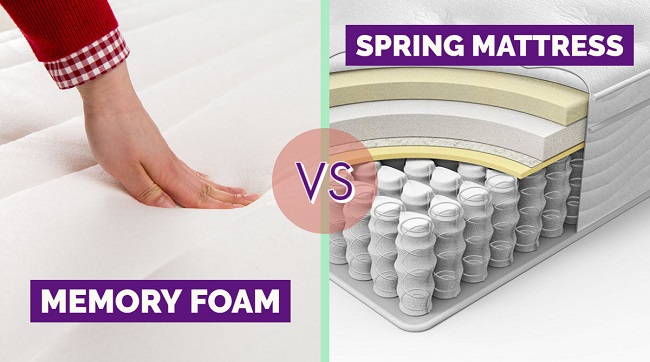 When it comes to comfort and support, both fiber and memory foam mattresses have their own strengths. Fiber mattresses are known for their plush and fluffy feel, making them comfortable for those who prefer a softer sleep surface. However, they may not provide enough support for those with back or joint pain.
Memory foam mattresses
, on the other hand, offer excellent support by evenly distributing body weight and relieving pressure points. They also have a slow response time, allowing the foam to contour to the body's shape for a more comfortable and customized sleep experience.
When it comes to comfort and support, both fiber and memory foam mattresses have their own strengths. Fiber mattresses are known for their plush and fluffy feel, making them comfortable for those who prefer a softer sleep surface. However, they may not provide enough support for those with back or joint pain.
Memory foam mattresses
, on the other hand, offer excellent support by evenly distributing body weight and relieving pressure points. They also have a slow response time, allowing the foam to contour to the body's shape for a more comfortable and customized sleep experience.
Durability and Maintenance
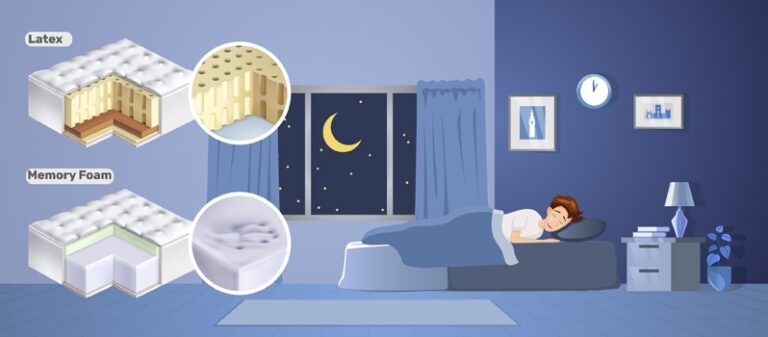 In terms of durability, both fiber and memory foam mattresses have their own advantages. Fiber mattresses are known for their durability, with some lasting up to 10 years with proper care. They are also relatively easy to maintain, as most can be spot cleaned or machine washed. However, they may lose their shape over time and require regular fluffing to maintain their loft.
Memory foam mattresses
are also known for their durability, with some lasting up to 15 years. They are also hypoallergenic and resistant to dust mites, making them a great option for those with allergies. However, they may require more maintenance and can be difficult to clean, especially if there are spills or stains.
In terms of durability, both fiber and memory foam mattresses have their own advantages. Fiber mattresses are known for their durability, with some lasting up to 10 years with proper care. They are also relatively easy to maintain, as most can be spot cleaned or machine washed. However, they may lose their shape over time and require regular fluffing to maintain their loft.
Memory foam mattresses
are also known for their durability, with some lasting up to 15 years. They are also hypoallergenic and resistant to dust mites, making them a great option for those with allergies. However, they may require more maintenance and can be difficult to clean, especially if there are spills or stains.
The Final Decision
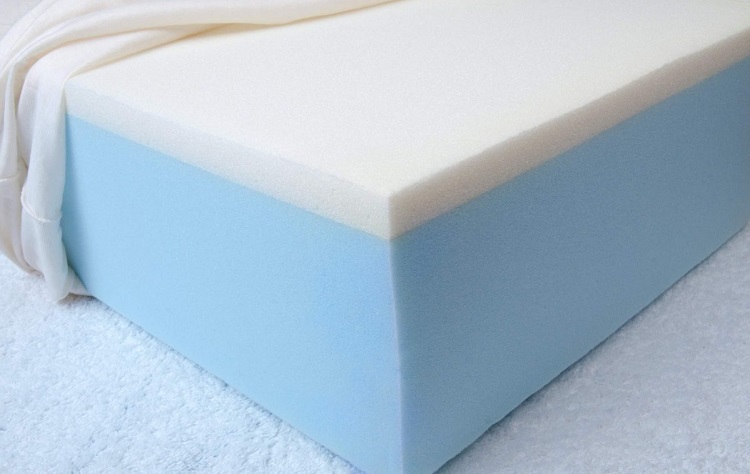 In conclusion, both fiber and memory foam mattresses have their own unique qualities and benefits. Before making a decision, consider your personal preferences and specific needs. If you prefer a soft and plush feel, a fiber mattress may be the better choice. However, if you suffer from back or joint pain and need more support, a memory foam mattress may be the way to go. Whichever you choose, make sure to invest in a high-quality mattress that will provide you with a comfortable and restful sleep for years to come.
In conclusion, both fiber and memory foam mattresses have their own unique qualities and benefits. Before making a decision, consider your personal preferences and specific needs. If you prefer a soft and plush feel, a fiber mattress may be the better choice. However, if you suffer from back or joint pain and need more support, a memory foam mattress may be the way to go. Whichever you choose, make sure to invest in a high-quality mattress that will provide you with a comfortable and restful sleep for years to come.
